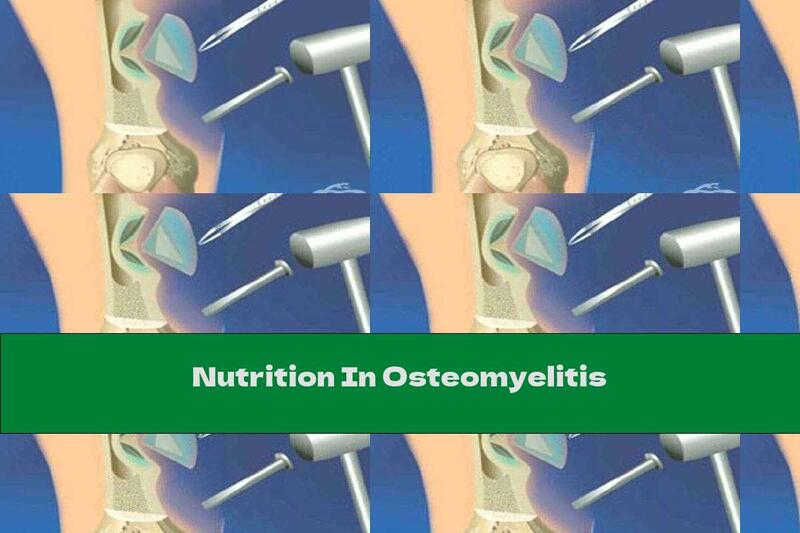Nutrition In Osteomyelitis
 Author: Nia Rouseberg
Time for reading: ~1
minutes
Last Updated:
August 08, 2022
Author: Nia Rouseberg
Time for reading: ~1
minutes
Last Updated:
August 08, 2022

CHAPTERS (Table Of Contents)
In this article, learn more about Nutrition In Osteomyelitis. Nutrition in osteomyelitis.
Osteomyelitis is an inflammatory process that takes place in the bone marrow and affects all bones.
Proper nutrition is necessary for the rapid recovery and strengthening of bones, as well as for the growth of healthy bone tissue.
To achieve the desired effect, the menu should be rich in antioxidants, amino acids, vitamins, minerals and proteins, but the amount of saturated fat should be minimal.
In the presence of such a health problem the body should provide:
- folic acid - found in beets, bananas, lentils, cabbage;
- B vitamins - a large amount is found in beef, offal, mackerel, sardines, herring, chicken eggs, chicken, shrimp, oysters, seeds, nuts, brewer's yeast, citrus fruits, potatoes (especially roasted), peas, soybeans;
- zinc - for its acquisition consume seafood, parsnips, celery, pumpkin and its seeds, legumes;
- magnesium - eat dairy products, whole grains, leafy vegetables and nuts;
- calcium - in sesame seeds and butter, almonds, dried apricots, turnips, spinach, hard cheeses and cottage cheese.
Dangerous and harmful foods in osteomyelitis:
- red meat;
- alcoholic beverages;
- sweet carbonated drinks;
- semi-finished and fast food;
- products containing caffeine, sugar, colors and additives.
All these foods and drinks slow down the growth of bone tissue and wound healing.
More on the topic:
- How to feed the bone marrow
Related Articles
- The Ultimate Guide to Hickory Smoked Bacon in Nutrition and Healthy Eating
- Fruitskewers in Honey Syrup: Nutritional Benefits and Recipes
- The Ultimate Guide to Buffer 500 in Nutrition: Benefits and Usage
- Nutritional Benefits of Fruit Skewers in Honey Syrup: A Delicious and Healthy Recipe
- Nutrition Guide: Fruitskewers in Honey Syrup - Benefits, Recipes, and More